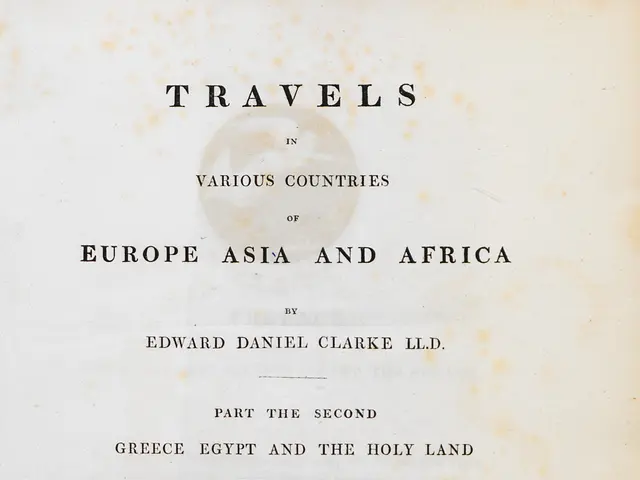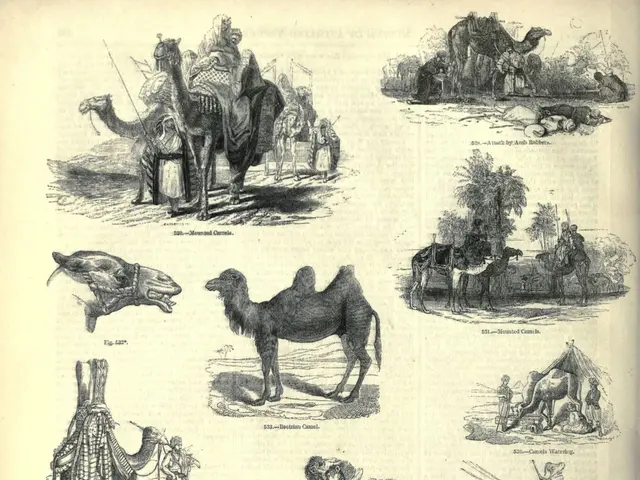A Viral Video Showcases the Irony of White South African "Refugees" Arriving in the U.S.
Americans Experiencing Homelessness Witness Arrival of Afrikaners, Claiming to Be Refugees, Pursuing a 'Superior Life'
In a TikTok video that's making waves, a volunteer helping the homeless in the U.S. shares a heartbreaking scene. A group of struggling Americans watch as the first batch of Afrikaner "refugees" set foot in the country.
The video, posted by user @awondthegod3, captures a group of poor Americans reacting to the arrival of white South Africans - now eligible for benefits like free housing, thanks to President Trump's asylum initiative.
"What happened to the AMERICA FIRST talk?" the caption reads, alluding to Trump's election campaign rhetoric.
He also uploaded another clip, highlighting his feeding program and emphasizing the need for assistance for struggling Americans, stating, "If this administration would like to help out another 8000 suffering people, let them know where we are. Americans need help as well."
Benefits Galore for Afrikaner "Refugees"
According to the New York Times, Afrikaner "refugees" in the U.S. are in for a tidy bundle of benefits under the resettlement program. They'll receive temporary or longer-term housing, essential household items, and cleaning supplies. Groceries, weather-appropriate clothing, diapers, formula, hygiene products, and prepaid phones will also be provided.
Suspended Refugee Program: A Question of Favouritism?
While Afrikaners gain entry into the U.S., the Trump administration has indefinitely halted the U.S. Refugee Admissions Program (USRAP) for all other countries. A month before an Executive Order allowing white South Africans to seek asylum in America was signed, the U.S.'s State and Homeland Security paused applications for all refugees. A month later, the Welcome Corps - a refugee government program introduced by the Joe Biden administration - was axed.
The inconsistency in refugee policy has sparked controversy on social media, with Americans questioning the administration's motives.
Enrichment:
- The Trump administration's decision to grant asylum to Afrikaner refugees was influenced by factors such as perceived racial discrimination and violence, policy changes, and political considerations.
- The broader context involves the Trump administration's policy shifts that led to the suspension or reduction of refugee admissions for many countries, with exceptions like the Afrikaners.
- The administration's selective approach to refugee policy has been criticized for its perceived inconsistency and bias.
- The sudden surge of 'Afrikaner refugees' in the U.S., as a result of President Trump's asylum initiative, are set to receive a wide range of benefits under the resettlement program, including temporary housing, essential household items, and food supplies.
- Amidst the outcry over the suspension of the U.S. Refugee Admissions Program (USRAP) for most countries, the Trump administration's decision to grant asylum to Afrikaners has raised questions about favoritism in refugee policy and politics.
- As the debate over 'war-and-conflicts' and 'general-news' continues to unfold, the inconsistency in refugee policy and the selective approach towards Afrikaner refugees has become a hot topic in 'politics', sparking controversy on social media and 'crime-and-justice' forums.
- The TikTok video highlighting the contrast between the plight of struggling Americans and the arrival of white South African 'refugees' in the U.S., serves as a stark reminder of the ongoing issues related to 'migration', 'policy-and-legislation', and the urgent need for a fair and equitable approach to managing refugees.








